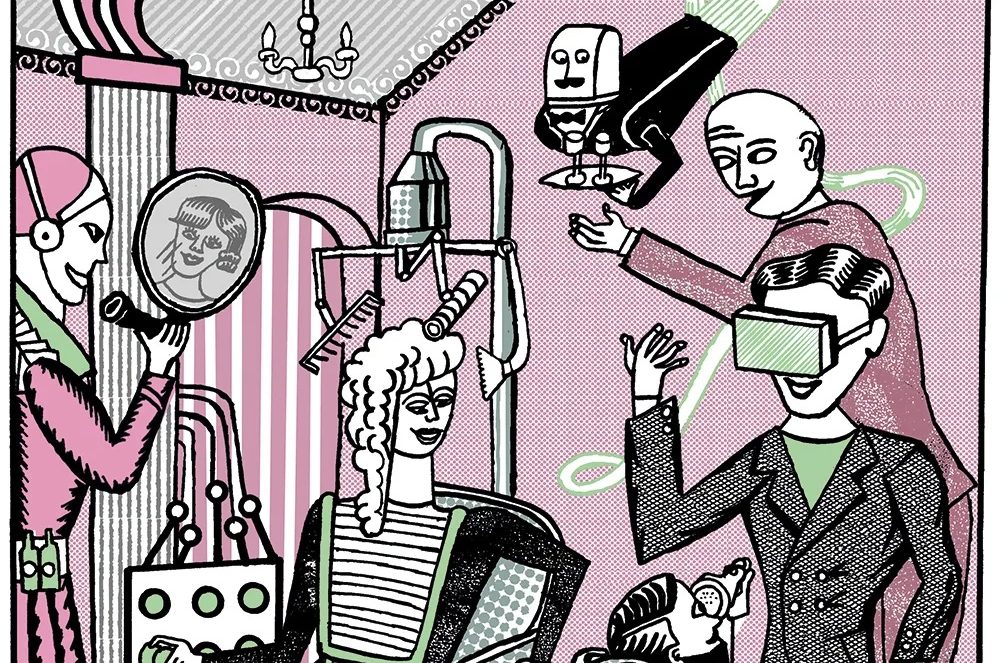It’s increasingly popular to say feminism can never be capitalist; no exceptions. Capitalism, by its nature, supposedly exploits women. But if feminism cannot be capitalist, how do you explain Katharine McCormick, the woman who single-handedly financed the development of the pill?
McCormick was a committed feminist, a campaigner for women’s voting rights, and a signed-up member of the National American Woman Suffrage Association. In the 1950s, when the US government would not invest in contraception research, McCormick used her own capital to advance the studies eventually leading to the pill.
Is this the kind of story that today’s feminists would sweep under the rug, in order to advocate for socialism above all else? It wasn’t the state, but private money that made possible one of the most important advancements in women’s rights for the past 60 years.
It is impossible to separate the advancements of women from the advancements of capitalism if we put aside the ugly path contemporary feminism has followed. Feminism’s roots lie in the right to vote, to speak our minds, to earn money, to spend money, and to do with our bodies what we deem fit.
McCormick is just one, albeit spectacular, example where capitalism and feminism intersect. Over a billion people have risen out of absolute poverty in the past 30 years thanks to the power of market forces, forces that have simultaneously empowered women.
Thanks to the wealth accumulated in liberal countries, funding for medicine means pregnancy and giving birth are no longer death sentences. And women have been given new choices that include where to work, what to buy and who to trade with. As living standards rise all over the world, women rise up too.
It is not a perfect world for women, of course. And those not born in liberal democracies often don’t have the rights they deserve. But even in horrible employment situations — like under-regulated, badly paid factory work — economists on both the left and right agree that moving women out of the fields is a step forward. Capitalism may not always improve women’s lives as fast as we’d like, but it does provide steadily increasing freedom.
And with those freedoms comes genuine choice. The gender pay gap, so often referenced as a mark against capitalism, is often not the result of sexism or discrimination, but a reflection of different decisions made by men and women throughout their working lives.
Equal pay and the gender pay gap are badly conflated to suggest crude averages somehow reflect unequal pay for equal work. Where men and women do the same, grueling, labor-intensive work out on farms, pay tends to be pretty ‘equal’; poverty keeps pay gaps small. But when people are given choice, allowed to pursue their own interests and goals, we see different outcomes as well as increased prosperity across the board.
This is not to say we can’t be doing more to help women through public policy. Increasing paternity pay so men can afford to take time off work would be a great start. But these things should compliment a freedom-maximizing agenda, not rail against a system that has played such an important role in women’s liberation.
As much of the developed world has embraced a framework of classically liberal values, there are a number of capitalist countries to look to when assessing female-friendly policies. To praise Denmark’s childcare policies or Sweden’s generous parental leave offers would be to embrace the policies of capitalist societies. Let’s not be so disingenuous as to brand countries socialist utopias when they offer market-based healthcare provisions, school choice, relatively low corporation tax and have no formal minimum wage.
If we dare to compare capitalist countries with the catastrophic attempts at alternatives over the past century, there is no contest between them. There is practically no ‘indicator of human wellbeing‘ that favors the Soviet Union, communist China, East Germany or today’s Venezuela over capitalist countries.
There have been horrifying attempts made to pretend Stalin and Mao were good to women, because they offered free childcare and laundry services. No, these are countries that failed to provide even the most basic items for women, such as sanitary products. These are countries that inflicted mass rape and executions in the name of ushering in utopia, killing women for their political dissent. The feminist campaigners in the early 1900s gave all they had so women in the future could practice political dissent — imagine telling them these socialist countries were feminist.
According to polling in the UK and USA, fewer than one in five young women call themselves a feminist. Claims like ‘feminism can’t be capitalist’ keep so many women at bay. It’s not just capitalism: you can’t be right wing and a feminist, you can’t be a Trump supporter and a feminist, and so on. If you question any part of today’s narrow feminist doctrine, you can’t be in the club at all.
Last year, a statue of Millicent Fawcett was erected — the first women in Parliament Square — to commemorate the 100-year anniversary of women gaining the right to vote. She is known for her feminism and activism, praised today by the same people who would tell you that feminism is only for those with socialist leanings.
What they don’t know is that Fawcett was a classically liberal economist. Her book Political Economy for Beginners was rooted in liberalism and the unequivocal truth that men and women are created equal.
One of our most revered feminists knew that markets, economics and liberalism were vital to women achieving ultimate freedom. Today’s anti-capitalists can deny capitalism’s role in female liberation all they want. But when we look up at Millicent Fawcett’s statue, we can see the truth is set in stone.
Kate Andrews and economist Deirdre McCloskey took part in the Oxford Union debate on Thursday night: ‘This House Believes Feminism Cannot Be Capitalist’, arguing against the motion. It was not carried. This article was originally published on The Spectator’s UK website.

























